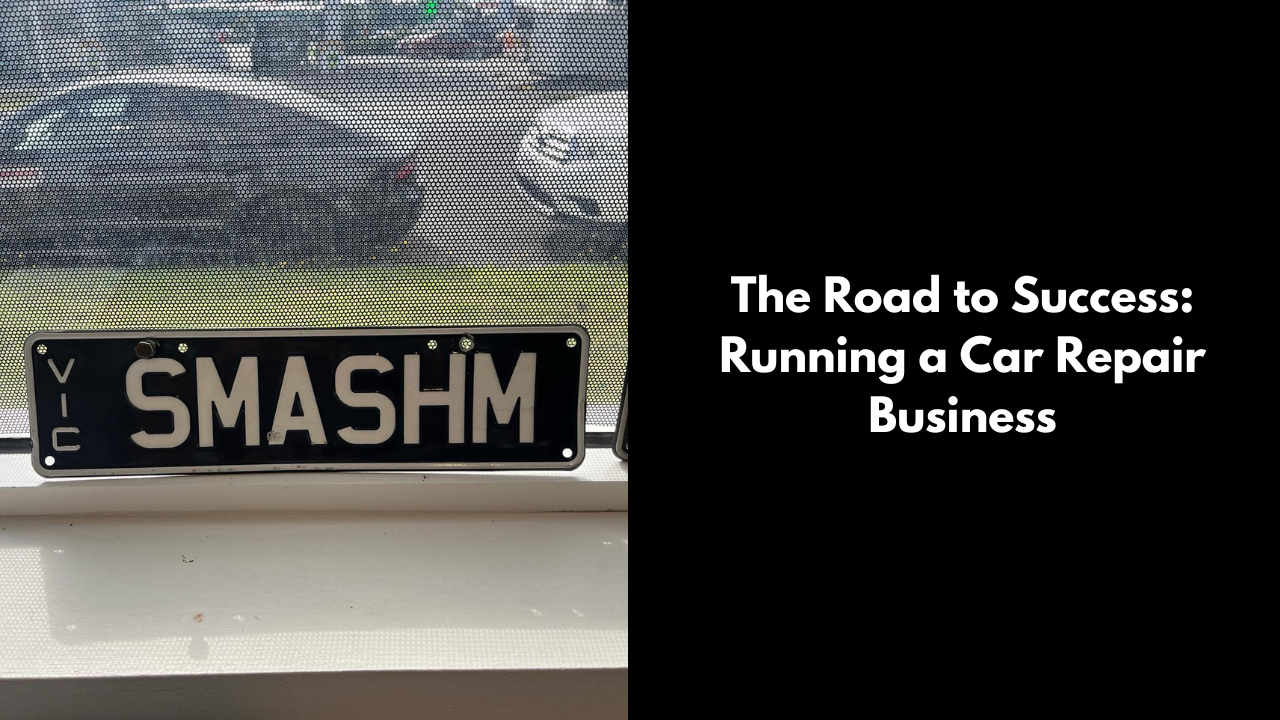Running a car repair business is not just about fixing cars; it’s about building a brand, ensuring customer satisfaction, managing operations, and staying ahead in a highly competitive market. Whether you’re a seasoned mechanic looking to transition into ownership or an entrepreneur passionate about the automotive industry, understanding the nuances of the car repair business is essential to drive success.
Understanding the Market

Before diving into the operational aspects, it’s crucial to understand the market you’re entering. The car repair industry is vast, with services ranging from basic maintenance and oil changes to complex repairs and bodywork. Each segment has its own customer base, competition, and pricing models. Identifying your niche within the market can help you tailor your services and marketing strategies effectively.
For instance, some repair shops focus on luxury cars, catering to clients who expect premium service and are willing to pay a premium price. Others may specialize in quick, affordable services targeting everyday commuters. Understanding your target market will inform everything from your pricing strategy to the tools and equipment you invest in.
Building a Strong Brand
In a crowded market, your brand is what sets you apart. Your brand is more than just a logo; it’s the perception customers have of your business. It encompasses your values, the quality of service you provide, and the experience customers have when they visit your shop.
For example, if you emphasize transparency and honesty, ensure that these values are reflected in every aspect of your business—from the way you communicate repair estimates to how you handle customer complaints. Your brand should resonate with your target audience and build trust, which is crucial in an industry where customers may not always understand the technical details of the services they’re paying for.
Customer Service: The Cornerstone of Success
Exceptional customer service is the backbone of any successful car repair business. Car repairs can be stressful for customers, and your ability to ease that stress can turn a one-time visitor into a lifelong client.
Communication is key. Keep customers informed at every step of the repair process, from diagnosis to completion. Explain the work that needs to be done in a way that’s easy to understand, and provide honest estimates for both time and cost. Offering transparency in pricing and not surprising customers with unexpected charges goes a long way in building trust.
Moreover, small gestures like offering a shuttle service, maintaining a clean and comfortable waiting area, or even just greeting customers with a friendly smile can enhance the customer experience. In an age where online reviews can make or break a business, every positive customer interaction is an investment in your business’s reputation.
Skilled Workforce and Continuous Training

A car repair business is only as good as the mechanics who work there. Hiring skilled technicians who are not only knowledgeable but also passionate about cars is essential. However, the automotive industry is constantly evolving, with new models, technologies, and repair techniques emerging regularly. Continuous training is vital to ensure that your team stays up-to-date with the latest advancements.
Investing in your employees’ growth can also improve job satisfaction and reduce turnover, which in turn leads to better service for your customers. Consider offering certifications, workshops, and hands-on training sessions to keep your team’s skills sharp.
Managing Operations Effectively
Running a car repair business involves juggling many moving parts—from managing inventory and ordering parts to scheduling repairs and handling payroll. Effective operations management is critical to ensure that everything runs smoothly.
Invest in good management software that can help you keep track of appointments, manage customer information, and streamline invoicing. Inventory management is also crucial, as having the right parts on hand can significantly reduce repair times and improve customer satisfaction. Keep an eye on your supply chain to ensure you’re getting the best prices on parts and supplies, and consider forming partnerships with suppliers for bulk purchasing discounts.
Location, Location, Location
The location of your repair shop can greatly impact your success. A shop in a high-traffic area, close to residential neighborhoods or businesses, is likely to attract more customers. Accessibility is key—customers don’t want to go out of their way to get their car repaired, so being in a convenient location is a significant advantage.
Additionally, consider the appearance of your shop. A clean, well-maintained facility not only creates a positive first impression but also reassures customers that their vehicle will be taken care of with the same level of attention to detail.
Marketing Your Business
Even the best car repair business needs effective marketing to bring in customers. In today’s digital age, having a strong online presence is essential. Start by creating a professional website that highlights your services, provides easy contact information, and includes customer testimonials.
Invest in search engine optimization (SEO) to ensure your business appears at the top of search engine results when potential customers are looking for repair services in your area. Social media marketing is also a powerful tool—use platforms like Facebook, Instagram, and Twitter to engage with your community, share success stories, and promote special offers.
Don’t underestimate the power of word-of-mouth marketing either. Encourage satisfied customers to leave reviews on Google, Yelp, and other review sites. Positive reviews can significantly influence potential customers’ decisions and help establish your business as a trusted name in the industry.
Financial Management
Sound financial management is crucial to the longevity of your business. Keep a close eye on your cash flow, ensuring that your income covers your expenses and that you have enough reserves to handle unexpected costs. Regularly review your pricing strategy to ensure it’s competitive yet profitable.
It’s also important to keep track of key financial metrics, such as gross profit margins, labor costs, and overhead expenses. Understanding these metrics can help you identify areas where you can cut costs or improve efficiency.
Consider working with an accountant or financial advisor who specializes in small businesses to ensure you’re making the most of your resources and taking advantage of any available tax deductions.
Adapting to Industry Changes
The automotive repair industry is constantly changing, with new technologies, regulations, and customer expectations emerging regularly. To stay competitive, it’s important to be adaptable and willing to evolve with the industry.
For instance, as electric vehicles (EVs) become more popular, consider investing in the tools and training necessary to service these vehicles. Similarly, staying informed about changes in environmental regulations and ensuring your shop complies with them is essential.
Adapting to industry changes also involves keeping up with customer expectations. As more customers seek out environmentally friendly and sustainable businesses, implementing green practices—such as recycling parts and using eco-friendly products—can set your shop apart from the competition.
The Importance of Networking and Community Involvement

Building strong relationships within your community can provide your business with a steady stream of loyal customers. Participate in local events, sponsor community initiatives, and network with other local businesses. Not only does this help build your reputation, but it also positions your repair shop as a valuable part of the community.
Networking with other industry professionals is equally important. Join industry associations, attend conferences, and participate in online forums to stay informed about industry trends, share knowledge, and learn from others in the field.
Conclusion: Driving Forward
Running a successful car repair business requires more than just technical know-how—it demands a strategic approach to customer service, operations, marketing, and financial management. By understanding your market, building a strong brand, and continuously adapting to changes in the industry, you can steer your business toward long-term success. As with any business, challenges will arise, but with the right mindset and dedication, your car repair shop can become a trusted and thriving part of the community.

